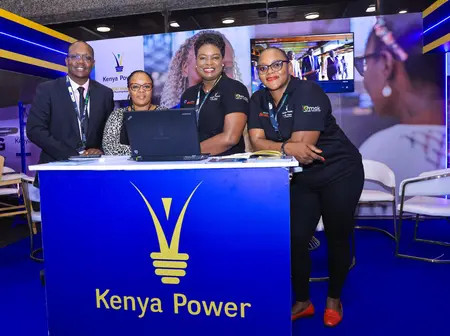Kenya’s electricity sector is on the verge of a significant regulatory shift. Power producers will soon be required to submit detailed annual outage schedules—or risk fines—as part of new rules designed to keep the lights on for millions of customers.
Under the Draft Energy (Electricity Reliability, Quality of Supply and Service) Regulations, 2025, any generation company that fails to hand in a 52-week shutdown plan for each of its plants will be fined Sh100,000 per month until compliance. The schedules, filed with both the Energy and Petroleum Regulatory Authority (Epra) and the Kenya Electricity Transmission Company (Ketraco), will give the grid operator a clearer picture of when plants are due for maintenance.
Until now, outage plans have rested on informal agreements between producers and regulators—a handshake deal rather than a binding obligation. That may have worked when demand was lower, but the stakes have grown. Kenya Power now serves more than 10 million customers, and national consumption has nearly doubled in the past decade.
The danger is clear: if several large plants go offline at once, the grid can buckle. In 2023, a fault at Olkaria’s geothermal field left the country in darkness, a reminder of how fragile the system can be. Regulators believe mandatory scheduling will help prevent a repeat.
Kenya’s appetite for electricity has surged, driven by urban growth, industrial expansion, and an ever-connected population. Demand reached 13.68 billion kilowatt hours last year, up from 7.24 billion kWh ten years earlier. But the infrastructure that moves this power remains vulnerable. Much of the transmission network is aging, and even minor shocks have been known to cascade into nationwide outages.
For businesses, that kind of unpredictability translates into losses. For households, it often means spoiled food, disrupted learning, and long nights without power. The new outage plan rules aim to bring some order to a system that too often bends under pressure.
Epra is following a playbook tested elsewhere. In France, power producers are legally obligated to declare annual outage schedules so grid operators can balance demand and supply. Ghana also compels its generators to file these plans, with sanctions for non-compliance. Kenya’s move is meant to align the country with such global best practice.
The draft regulations are still under review, but if passed, they will apply to the country’s 25 operational power plants, a mix of state-owned facilities and independent producers. Anchoring the requirement in law would mark a shift toward stricter oversight and tighter coordination in a sector that has long relied on voluntary cooperation.
For electricity producers, the message is simple: transparency will no longer be optional. For consumers, the hope is fewer unplanned blackouts, steadier supply, and a grid that can better keep pace with the demands of a modern economy.

Leave a Reply